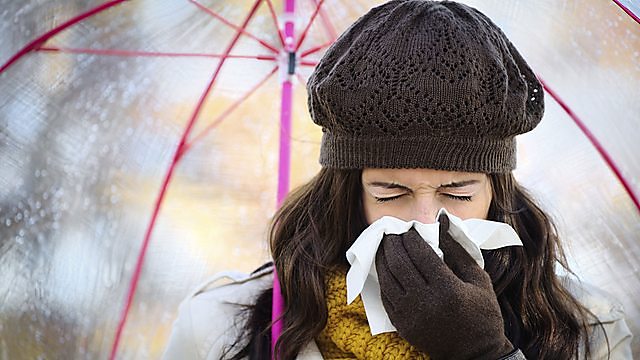
Gene Seasonality
Effects of seasonality on our genes may explain why some illnesses are aggravated in winter
A huge global study has discovered that many of the genes involved with immunity - the body's defence against infection - were more active in the winter season. And while this helps fight off viruses such as colds and flu, it may trigger or worsen conditions, such as Multiple Sclerosis, type-one diabetes and arthritis, where the body attacks itself.
The Truth About AIDS
Former UK Health Secretary Lord Fowler focuses on his own experience. When the virus hit Britain, and despite opposition from then Prime Minister Margaret Thatcher, he pushed through a major public information programme. Now, 30 years later, Lord Fowler travels across the globe to examine a set of simple but effective policies which can keep people safe and healthy - and to inquire why they still meet fierce resistance in some parts of the world.
Cyber-Archaeology
In February this year, the world was shocked by a video of a group, calling themselves Islamic State, destroying artefacts in a museum in the city of Mosul in Iraq. Although many of these precious items, some of them over 3,000 years old, have been reduced to rubble, a new breed of scientists, cyber-archaeologists, are hoping to recreate the pieces – digitally. One of them is Matthew Vincent who has co-founded Project Mosul, using crowd-sourced photos of historical artefacts and using a technique known as photogrammetry to stitch them together into 3D online images that we can see and move around with a mouse.
Future of Solar Energy
Roland Pease looks into perovskites - the materials enthusiasts say could transform solar power.
Solar power is the fastest growing form of renewable energy. But most of it collected by panels made of silicon - the material that also goes into computer chips. But silicon is an old technology, and researchers have long sought a material that is both better at capturing sunlight. And cheaper to make. Perovskites, which first emerged into the lab just a few years ago, promise to be just that material. Roland Pease meets the experts who have made this happen, and finds out what makes perovskites so good - and what wrinkles still have to be ironed out.
Chemosynthesis
Organisms generate energy in all sorts of ways and it can happen in all sorts of weird places, such as deep sea hydrothermal vents, where bacteria takes nasty stuff such as Hydrogen Sulphide, and turn it into useful stuff such as amino acids. This is called chemosynthesis. But it turns out that it doesn't just happen in dark corners of the ocean. As tubeworm expert Nick Higgs explains we are learning that chemosynthesis is everywhere.
OneZoom Tree of Life
Zoologists have been gathering huge amounts of data about how animal species are genetically related to each other. But this information is often contained in vast datasets that are difficult to navigate if you don’t know what you’re looking for. Now the full power of computerised visualisation has been used to allow anybody to explore the tree of life on one page. OneZoom is an intuitive map, which allows the user to zoom in on any part of the Animal Kingdom and get to the details really quickly.
Science Hour was presented by Jack Stewart with comments from Jonathan Webb
Producer: Melanie Brown
(Photo caption: Woman sneezing and coughing in autumn. Credit: Thinkstock)
Last on
More episodes
Next
Broadcasts
- Sat 16 May 2015 21:05GMTΒι¶ΉΤΌΕΔ World Service Online
- Sun 17 May 2015 10:05GMTΒι¶ΉΤΌΕΔ World Service Online
Podcast
-
![]()
Unexpected Elements
The news you know, the science you don't

